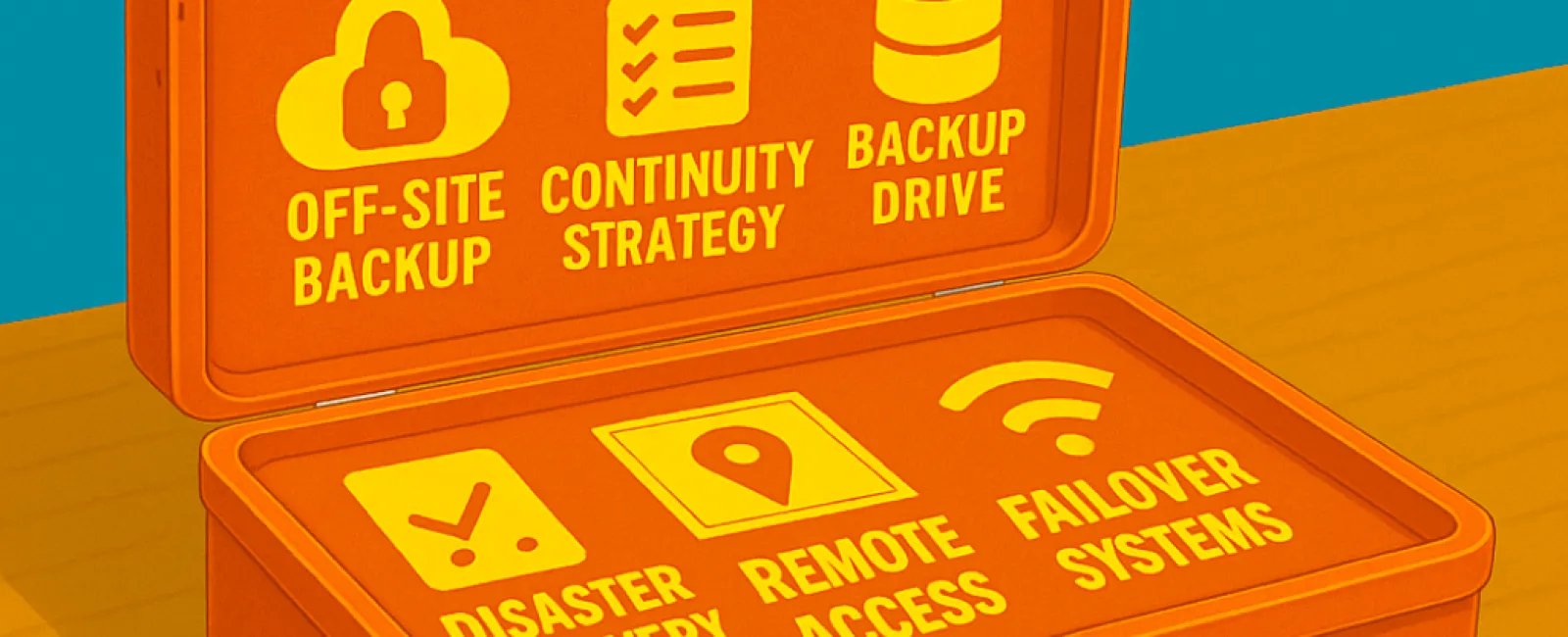July 28, 2025
Unexpected events like power outages, cyberattacks, hardware malfunctions, and natural disasters can strike without warning, causing severe disruption to small businesses. Many believe that simply having backups is sufficient, but restoring files alone doesn't guarantee your business stays operational. If your systems are inaccessible, remote work isn't supported, or communication with your team and clients breaks down, even a brief interruption can lead to lasting damage. A dependable IT partner provides more than backups—they deliver a comprehensive strategy to keep your business running smoothly through any crisis.
Backups Are Just One Piece - Continuity Is Key
Backups are undeniably vital, but they represent only a fraction of what you need. A robust business continuity plan proactively ensures your operations can persist during and after disruptions.
When systems fail, files become unreachable, or your physical office is compromised, relying solely on local backup files won't suffice. Without a well-crafted plan for rapid recovery, you risk significant losses in revenue, reputation, and regulatory compliance.
Understanding the Crucial Difference: Backups vs. Business Continuity
Many businesses make this critical mistake:
● Backups allow you to recover data.
● Continuity ensures your business stays functional no matter the challenge.
An effective continuity plan addresses critical questions such as:
● How quickly can we bounce back?
● Where will the team operate if the office is unusable?
● Which systems are absolutely essential?
● Who is responsible for launching the recovery process?
It also incorporates vital elements like:
● Encrypted, off-site, and immutable backups
● Prioritized recovery objectives (RTO/RPO)
● Preparedness for remote work
● Redundant infrastructure and failover systems
● Regular disaster simulation drills
If your IT provider can't confidently guide you through these essentials, you're not fully protected—you're just fortunate so far.
Could This Happen to Your Business?
This isn't a scare tactic; these are real-world incidents with serious consequences. Recently:
● Florida hurricanes forced hundreds of businesses to shut down, with those lacking cloud access completely immobilized.
● North Carolina floods wiped out on-site servers, erasing months of critical records and invoices.
● California wildfires destroyed entire office buildings in Pacific Palisades, many without any off-site recovery solutions.
● Numerous small businesses hit by ransomware attacks discovered their backups were either corrupted or never properly tested.
Disasters don't only affect large corporations—they impact businesses just like yours every day.
Essential Questions You Need to Ask Now
If disaster struck tomorrow, could your business keep running?
Ask your IT provider:
● How quickly can we recover if ransomware attacks?
● Are our backups regularly tested, and which systems do they cover?
● What's the contingency if a flood or fire destroys our office?
● Is our continuity plan aligned with industry compliance standards?
● Can we continue serving clients if our team needs to work remotely?
If you don't have full confidence in these answers, your business is vulnerable.
Disasters Are Inevitable. Downtime Doesn't Have to Be.
While you can't prevent every outage, storm, or cyberattack, you can control how your business responds.
A good IT provider helps you recover.
A great one ensures your operations never miss a beat.
Ready to assess your business's resilience?
Click Here or call us at 929-523-2921 to schedule your FREE Call With Our CEO, and let's guarantee disasters never cause downtime.




